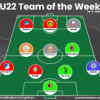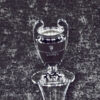Kaustubh Pandey gets the chance to sit down with Italian football scout and agent, Giulio D’Alessandro
Contrary to popular opinion, football has never been about those who perform on the pitch and the crooked man in a suit or a track suit and seldom with a baseball cap who is patrolling the touchline and screaming out for his instructions to be heeded. And it will never be about just them. Apart from the fact that the kick of a mere ball often stops the world for ninety minutes, the beauty of football lies in how it changes lives of people who love the beautiful game and work for it.
People like scouts and coaches are among those overly underrated characters that never get the attention they deserve, despite all the hard work they put in to make players the superstars they end up becoming. We love it when a certain Lionel Messi scores a hat trick at a time when an unknown man called Josep Maria Minguella feels proud, very discreetly in a district called Guimera in Spain. And while we hardly know people who do these jobs, they are happy for the very fact that they are working for the game they love.
I caught up with an Italian football scout and agent Giulio D’Alessandro, as he narrates tales of football scouting.
Being a scout, do you think that scouting is an under appreciated job?
It is very important for a scout is to get credit for what he does and for his talent in feeling the potential of a player.
A majority of clubs don’t invest in this area properly. They don’t have an interest in developing a high level organization in that field. They leave the responsibility to the sporting director and his staff. But real models are clubs like Udinese, who give support to their sporting directors with an organized and efficient scouting department.
You were one of the first Italian scouts who discovered a player that now is one of the biggest talents on the European scene- Celta Vigo winger Pione Sisto. Tell me about him.
I discovered Pione Sisto when he was just 16 years old, when he was playing with the Midtjylland youth team, which is one of the best football Academies in North Europe. His technique impressed me a lot. There are many players who are talented in the one-on-situation and have the pace and power but 90% of them don’t have the right technique and they don’t reach the highest level in football. Pione, quite differently, had this technique. He showed vision, passing quality and mostly a very good kicking ability. He was the one shooting from free kicks and crossing from corner kicks, he used to shoot from distance with shots that were very dangerous.
When these qualities combined with his athletic skills, it made him one of the players to watch for in the Danish Superligaen 2012/13. He made his debut for the first team one year later, showing his talent more and more game after every game. I got a mandate from his agent to offer him in Italy in January, 2014. With my partner I offered him to Napoli and Roma as both clubs were looking for U19 talents with international pedigree and big improving margins and I thought Sisto was the player that they were looking for. At that time, his transfer fee was around 800.000 Euros. At the time Pione had played something like 20 games for the first team and only one goal, aged 18 years old. Clubs didn’t like him at all. He was mostly playing with right foot, and didn’t showed his scoring ability too. So clubs decided to not bet on him. The funny thing is that only one month after the transfer window closed, around March, he played an impressive game against FC Copenhagen, the best club in the league (Champions League regulars) and he scored two impressive goals. In that game he reminded me of the famous Ronaldinho performance against Real Madrid. His second goal was very similar, starting the run from his own half.
After that performance people started keeping an eye on him and at the end of the season Juventus took him on trial for one week. They didn’t sign him and after another two seasons with Midtjylland, he was bought by Celta Vigo for 6 millions Euros. Key performances for him with Midtjyjlland were his games against Manchester United in the Europa League where he scored two goals; one at home and one at Old Trafford. Now, he is also an important member of Danish National Team. I believe that he is one of the players who will join a big club for a fee not under 15 millions in the next two seasons.
How do you feel that despite discovering a player as good as Pione, you still don’t get the credit for it?
This is normal, Kaus. No one discovered anyone, in realty. If it’s true that I was one of the first scouts who noticed Pione Sisto in Italy, it’s also true that there was surely someone who noticed him in another country before me and that showed him to Midtyjlland before and someone before it as well. I didn’t discover him. I just bet on him when he was just a fresh debutant. Credits for scouts have to be based on their network and their versatility. A high level scout is able to find talented players everywhere even without moving, having other links around suggesting to them who is born in their country, such that the scout can study the profiles and bet on them after having known the personality of the player. Credit for those who discovered players can’t always be deserved because there is always someone who discovered him before of you.
Who is your next Pione Sisto?
There are many talented players around the world, if you work like me without any geographical limit since I scout players from all the continents of the world. When it comes to the next Sisto kind of player, two years ago I was looking at a Nigeria U17 player in Samuel Chukwueze, left foot winger. This boy is very similar to Pione Sisto but with the opposite foot. Just this summer he joined Villarreal.
Concerning youth players in general, the one I’m following now with big interest is Usman Abbas, a left back and defensive midfielder of FK Metta, a Latvian club. I discovered Abbas in the summer of 2014 when I saw him playing with the Nigeria U17s in a qualifier for the 2015 U17 African Cup of Nations. His high work rate and impressive off the ball movement impressed me. He was always dangerous and thanks to the style of play of his team, he was mostly in the offensive side of the game. I also followed him during the African Cup of Nations where he was selected by Wyscout as the best left back of the competition. So I decided to sign him under an agent contract and I moved him to Europe at a club where I know young players are well trained and well employed. This club was FK Metta, where I have a lot of trust in the coach, who is a master in developing youth players. After one year (he moved there when he was 18, the summer of 2016) he has already made more than 30 appearances for the club, having played regularly as starter since joining them.
At the beginning he wasn’t very good in the defensive phase and his technique had problems. He has a small size and at the time he didn’t have an adequate muscle mass. Now he is a player that, I believe, can be of interest to a big football club very soon. He has become very hard to overcome in the one on one’s. He is aggressive, hungry, determined, a challenger who always wants to win . At same time he is a dangerous player in the offensive phase. He developed an impressive adequacy to the role of defensive midfielder, playing in a similar style to N’Golo Kante. He is a player with 100.000 Euro price tag (he has two years of contract remaining), a name that has to play at a higher level.
Tell me more about the footballing situation of your country. With the Italian Serie A improving a lot this season, what do you think about the state of affairs?
I believe this season will be the first after many years where the high level clubs of the league are more than 3 (Juventus, Napoli, Roma, Milan, Inter and Lazio). Milan and Inter finally came back from the shadows and they used different strategies for this result. Milan bought a new team mostly, many high level players added to the roster that will surely make a big impact in the league. Kessie and Calhanoglu more than others. Inter signed the best coach in Italy and one of the best in the world, Luciano Spalletti. Juventus, Napoli and Roma stayed at same level, Juventus lost Bonucci and that is a hard loss for them. Napoli are the team of last season with high level players and an impressive style of play. Roma changed a lot. Losing Spalletti, Roma lost a big percentage of his value in my opinion. Under him, all the players were giving their 110% and now it will be difficult to stay at that level. Having sold starters like Rudiger and Salah and having lost Szczesny, I can say that the level has fallen. The only starter bought this summer is Patrik Schick, who, in my opinion is one of the best U21 striker in the world. But he is a number 9 and while playing in a 4-3-3, it will not be very natural to put him up front with Dzeko. The defensive line seems weaker and less compact and I have fear this will not be a positive season for Roma. I think the title will be a close run thing between Juventus, Milan and Napoli with Roma and Inter fighting for the fourth place for getting Champions League qualification.
What about you? You are only 25 years old and you have already a high level career behind you. Tell me about as to how you were able to achieve results at this young age. Any advice to the guys that want to become football professionals?
The key thing is to believe in yourself. No one can tell you that it is impossible and no one can tell you that you are too young for it. It’s up to you and to your determination. I believe these situations needs mental sacrifices. The main sacrifice is to give 5-6 years of your life working hard and earning nothing.
After that, you need to start again. Look to use the contacts and the experience you gained over the years. So you have to give 100% of your time to this goal, not losing time on other things like work and university (if possible obviously). This way, you will realise your dream. You can start as a scout or as an agent. Years after you get the credit and chances, you will be able to become a name in the market of the sport directors. Key point again, in phase 2, is to believe in yourself and show your skills to everyone, mostly out of your nation, learning English (impossible to work without it), Spanish and French as well if possible. Transfermarkt and Instatscout or Wyscout are key instrument for the job and Linkedin, Facebook and other social media tools are key to get new contacts.
African market is open to anyone. If you work hard and have the possibility, take under representation contract players of youth national team and move them to small European clubs, so they can put their first feet in the continent. Asian market is very good for partnership and sponsorship, South America is the country of the “impresari”, agents with a percentage on the player’s value. North America is harder because of their closure to foreign agents.
What is the biggest difference between the role of an agent and a scout?
There is a big difference between those two. One, the agent, is a freelance and he is independent and his only interests are the benefits of his players and of his businesses. The scout is someone who work for a club and has his interests in do something positive for his team, coordinating his work with the sport director and the coach. One of the biggest problems of football nowadays is that there are few scouts and too many agents. Agents have personal interest and don’t work for the interest of clubs. This is something that has to change in football in general and I believe every club needs at least 9-10 scout under contract, with contracts that can encourage the development of this kind of career. The ridiculous thing is that in Italy, 90% of the talent scout don’t earn any salary. What clubs give them is just a refund and a commission in case they sign a player selected by the scout. This encourages professionalism in choosing an agent’s career instead of that of a scout. In that way, they will be also able to represent players and gain a percentage of their salary. Also they will be able to work with all the clubs of the world. So there is more of a personal interest than the club’s interest in the world of professional football.
How has scouting changed ever since you began?
A lot. Now numbers and statistics are much more important than they were 8 years ago. With platforms like Instatscout and Wyscout, you can watch any kind of game of any league in the world, from Champions League to Zambian second division. Durin my time, when I started, there weren’t too many possibilities to move around (I always worked on foreign players) for selected players. I used to work with Youtube, Rojadirecta and any kind of site where full games where recorded (not many).
So my work was 10 times harder than it is now. With time, the world will become smaller and any club will know about any player.
- Interview: Abneet Bharti on Indian footballers abroad - October 3, 2018
- Scout Report: Nicolo Barella | Cagliari’s Complete Midfielder - October 16, 2017
- Tales of a Football Scout: Giulio D’Alessandro - October 5, 2017























































